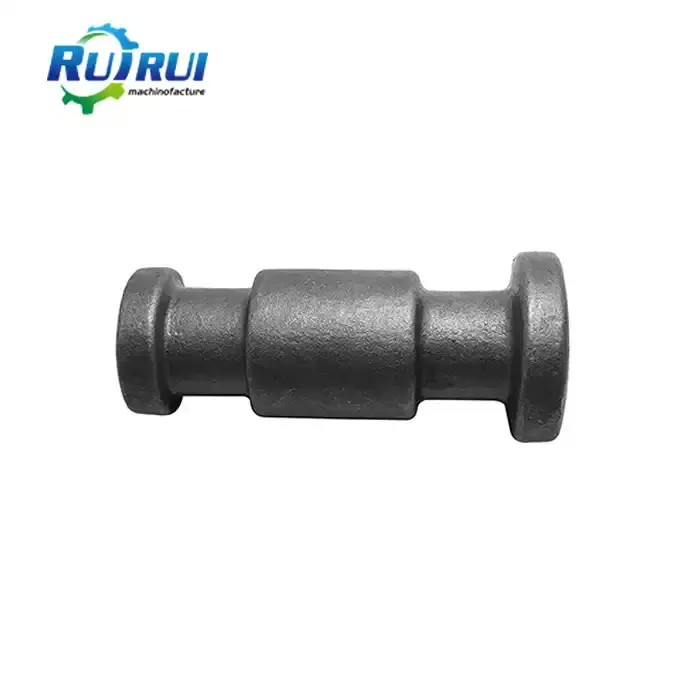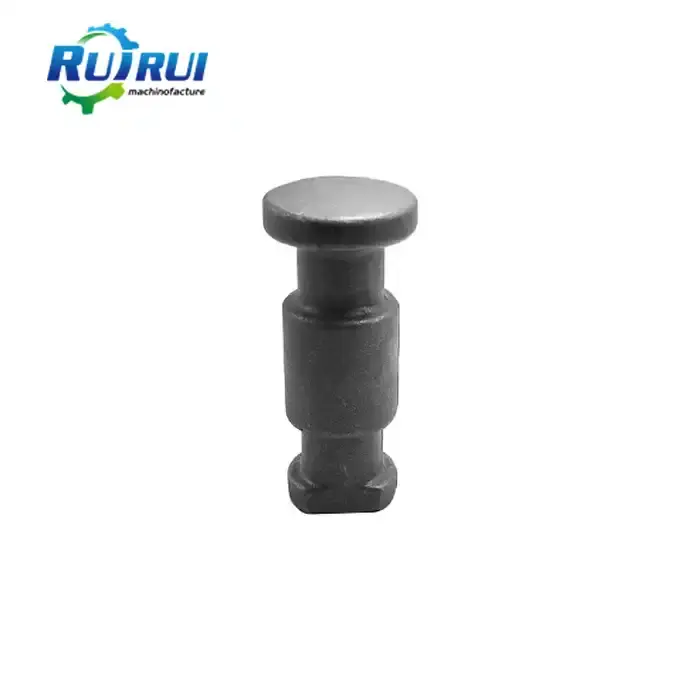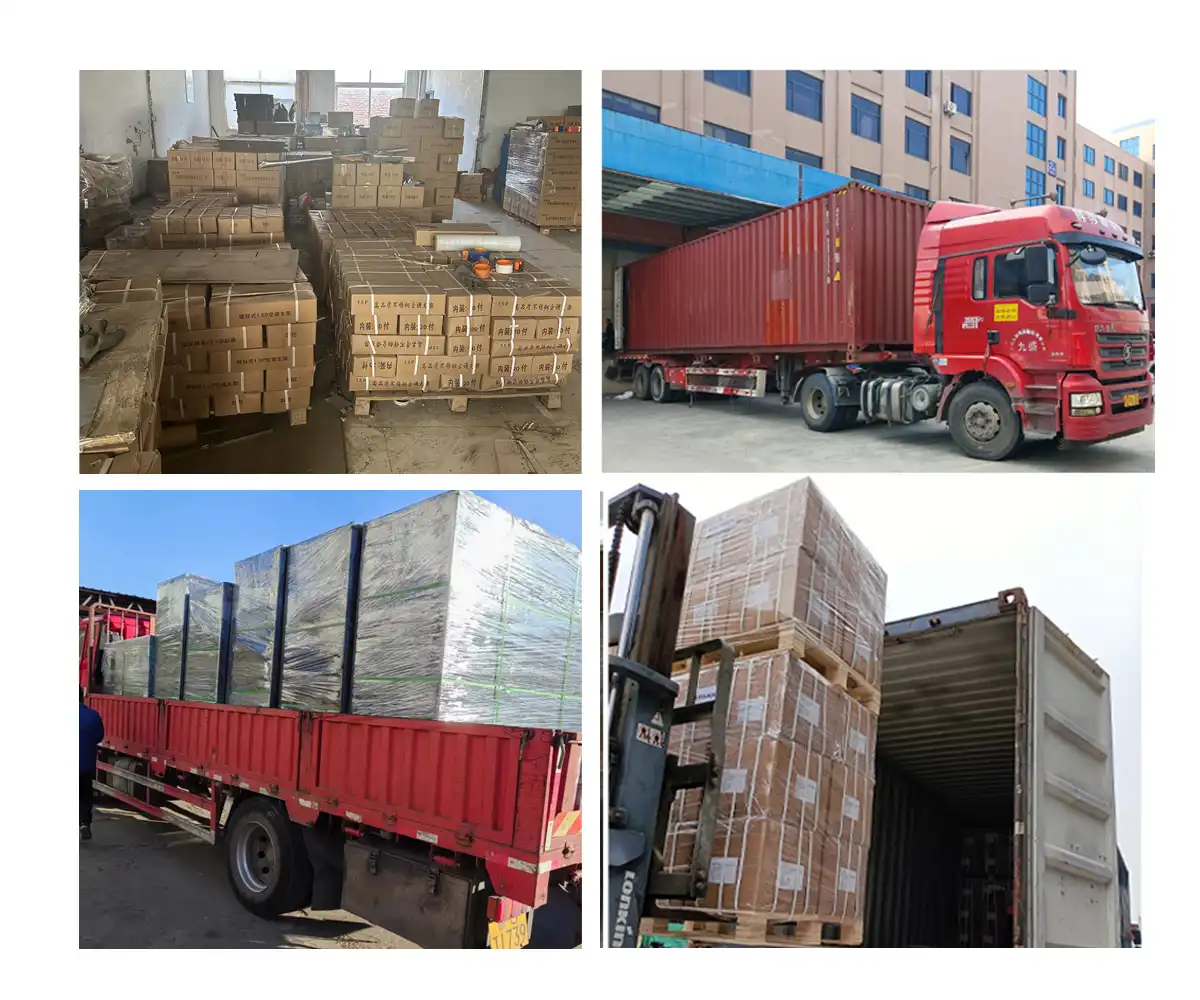What Are the Key Advantages of Using Special-Shaped Forging Custom Auto Parts Over Cast Components?
2025-08-05 11:21:08
In the rapidly evolving automotive industry, manufacturers continuously seek solutions that deliver superior performance, enhanced durability, and cost-effectiveness. Special-shaped forging custom auto parts have emerged as a game-changing technology, offering significant advantages over traditional cast components. This manufacturing process represents a paradigm shift in automotive component production, where precision engineering meets innovative design to create parts that exceed conventional performance standards. Special-shaped forging custom auto parts provide automotive manufacturers with unprecedented advantages through advanced metallurgical processes that fundamentally transform material properties. Unlike casting, which involves pouring molten metal into molds, forging applies controlled pressure and heat to reshape metal into desired configurations, resulting in superior grain structure and mechanical properties. This process eliminates the porosity and internal defects commonly found in cast components, delivering parts with exceptional strength-to-weight ratios and enhanced fatigue resistance. The customization aspect allows manufacturers to create components with complex geometries that precisely match specific automotive applications, from powertrain components to chassis elements, ensuring optimal performance across diverse vehicle systems.

Enhanced Mechanical Properties and Structural Integrity
Superior Strength-to-Weight Ratio Performance
Special-shaped forging custom auto parts demonstrate remarkable strength-to-weight ratios that surpass cast components by significant margins. The forging process fundamentally alters the metal's grain structure, creating continuous grain flow that follows the component's contours. This metallurgical transformation results in parts that can withstand higher stress loads while maintaining reduced weight profiles. At Qingdao RUIRUI Machinery Co., LTD, our advanced forging techniques utilize high-grade steel, aluminum alloys, and titanium materials to achieve tolerances as tight as ±0.05mm. The closed-die and open-die forging processes we employ ensure that each special-shaped forging custom auto parts component maintains consistent material properties throughout its structure. Our manufacturing capabilities span components ranging from 0.5 kg to 500 kg, with surface finishes achieving Ra 0.8 to 6.3 μm specifications. This superior strength-to-weight performance translates directly into improved fuel efficiency, enhanced vehicle dynamics, and reduced overall vehicle weight without compromising structural integrity.
Exceptional Fatigue Resistance and Durability
The forging process creates a continuous grain flow pattern that significantly enhances the fatigue resistance of special-shaped forging custom auto parts compared to cast alternatives. This grain flow alignment follows the component's stress patterns, creating natural reinforcement zones that resist crack propagation and failure under cyclic loading conditions. Our hot, warm, and cold forging capabilities at RUIRUI enable us to optimize material properties for specific applications, whether producing crankshafts, connecting rods, or suspension components. The elimination of casting defects such as porosity, inclusions, and shrinkage cavities results in components with predictable failure modes and extended service life. Our comprehensive testing protocols, supported by ISO 9001 and IATF 16949 certified quality management systems, ensure that each forged component meets rigorous automotive industry standards. The enhanced durability of these components translates into reduced maintenance requirements, lower warranty costs, and improved customer satisfaction throughout the vehicle's operational lifetime.
Consistent Material Properties and Quality Control
Special-shaped forging custom auto parts exhibit superior consistency in material properties compared to cast components, thanks to the controlled nature of the forging process. Our advanced manufacturing facilities utilize state-of-the-art equipment and robotic production lines to maintain precise control over temperature, pressure, and cooling rates throughout the forging cycle. This level of control ensures that every component meets exact specifications, with minimal variation between production batches. Our quality assurance protocols include comprehensive testing procedures that verify mechanical properties, dimensional accuracy, and surface finish requirements. The forging process eliminates the variability inherent in casting operations, where factors such as pouring temperature, cooling rates, and mold conditions can introduce inconsistencies. Our engineers work closely with quality inspectors to establish detailed product quality files from production initiation, recording the manufacturing process of each component to ensure traceability and continuous improvement opportunities.

Design Flexibility and Manufacturing Efficiency
Complex Geometry Capabilities and Customization Options
The forging process enables the production of special-shaped forging custom auto parts with complex geometries that would be challenging or impossible to achieve through conventional casting methods. Our design collaboration and engineering support services work closely with automotive manufacturers to develop components that precisely match their specifications, from initial material selection to final geometry optimization. The ability to create intricate shapes, undercuts, and varying wall thicknesses in a single forging operation provides designers with unprecedented flexibility in component design. Our advanced CAD/CAM capabilities support rapid prototyping and small batch production, allowing for thorough testing and validation before high-volume manufacturing begins. This customization capability extends to various automotive systems, including powertrain components like crankshafts and connecting rods, suspension parts such as control arms and steering knuckles, transmission components including gears and shafts, chassis components like axle beams and wheel hubs, and specialized EV-specific parts such as battery enclosures and motor housings.
Reduced Material Waste and Cost-Effectiveness
Special-shaped forging custom auto parts manufacturing demonstrates significant material efficiency advantages over traditional machining and casting processes. The near-net-shape capability of forging reduces material waste by up to 50% compared to machining operations, where substantial material removal is required to achieve final dimensions. Our progressive stamping and deep drawing capabilities further enhance material utilization, creating components that require minimal secondary processing. The cost-effectiveness of forging becomes particularly apparent in high-volume production scenarios, where the initial tooling investment is amortized across large production runs. Our flexible production capacity accommodates varying order volumes, from prototype quantities to high-volume manufacturing requirements. The reduced material waste translates into lower raw material costs, reduced environmental impact, and improved sustainability metrics. Our commitment to sustainable manufacturing practices includes comprehensive recycling programs and energy-efficient production processes that minimize our environmental footprint while maintaining cost-competitiveness.
Streamlined Production Processes and Lead Times
The manufacturing of special-shaped forging custom auto parts benefits from streamlined production processes that significantly reduce lead times compared to traditional casting and machining operations. Our efficient production processes ensure delivery times of 20-45 days for standard orders, with expedited options available for urgent requirements. The forging process eliminates many secondary operations required in cast component production, such as extensive machining, welding, and heat treatment procedures. Our eight production lines operate with fully automated robotic systems, achieving an annual output capacity of 130,000 pieces while maintaining consistent quality standards. The integration of advanced thermoplastic coating processes and comprehensive surface finishing capabilities, including anodizing, polishing, powder coating, plating, and electrophoresis, provides complete component solutions within a single manufacturing facility. This vertical integration reduces supply chain complexity, minimizes transportation costs, and provides greater control over production scheduling and quality assurance.

Superior Performance in Automotive Applications
Powertrain and Drivetrain Component Excellence
Special-shaped forging custom auto parts excel in powertrain and drivetrain applications where high strength, precise dimensions, and exceptional fatigue resistance are critical requirements. Our forging expertise encompasses the production of crankshafts, connecting rods, transmission gears, and drive shafts that meet the demanding performance requirements of modern automotive engines. The superior grain structure achieved through forging provides these components with enhanced load-bearing capacity and resistance to dynamic stresses encountered in high-performance applications. Our manufacturing capabilities include specialized heat treatment processes that optimize material properties for specific operating conditions, ensuring optimal performance across diverse powertrain configurations. The precision achievable through forging eliminates the need for extensive machining operations, reducing production costs while maintaining the tight tolerances required for proper component function. Our experience in producing EV-specific components, including motor housings and battery enclosures, demonstrates our ability to adapt forging technology to emerging automotive technologies.
Suspension and Chassis Component Reliability
The automotive suspension and chassis systems benefit significantly from the enhanced mechanical properties of special-shaped forging custom auto parts. Control arms, steering knuckles, axle beams, and wheel hubs produced through forging exhibit superior fatigue resistance and dimensional stability compared to cast alternatives. These components must withstand complex loading conditions, including bending, torsion, and impact forces, while maintaining precise geometric relationships for proper vehicle handling and safety. Our forging processes create components with optimized stress distribution patterns that resist deformation and failure under extreme operating conditions. The elimination of casting defects ensures predictable mechanical behavior and eliminates the risk of sudden component failure that can compromise vehicle safety. Our comprehensive testing protocols verify that each forged component meets or exceeds automotive industry standards for strength, durability, and dimensional accuracy.
Enhanced Vehicle Safety and Performance Standards
Special-shaped forging custom auto parts contribute significantly to overall vehicle safety and performance through their superior mechanical properties and consistent quality characteristics. The enhanced strength and fatigue resistance of forged components provide greater safety margins in critical applications, reducing the risk of component failure that could compromise vehicle operation or occupant safety. Our quality management systems, certified by ISO 9001, ISO 14001, and OHSAS 18001, ensure that every component meets rigorous safety and performance standards. The predictable failure modes of forged components enable automotive engineers to design more reliable systems with optimized safety factors. Our global reach, with products exported to more than 80 countries including Spain, the UK, Europe, America, and Australia, demonstrates the international recognition of our quality standards and manufacturing capabilities. The continuous improvement philosophy embedded in our operations ensures that we remain at the forefront of automotive component technology and safety requirements.
Conclusion
Special-shaped forging custom auto parts represent a superior alternative to cast components, offering enhanced mechanical properties, design flexibility, and manufacturing efficiency that directly translate into improved vehicle performance, safety, and cost-effectiveness. The comprehensive advantages of forging technology, combined with advanced manufacturing capabilities and rigorous quality control systems, position these components as the optimal choice for modern automotive applications.
At Qingdao RUIRUI Machinery Co., LTD, we leverage our extensive manufacturing experience, complete equipment capabilities, and efficient R&D team to deliver innovative forging solutions that meet the evolving demands of the automotive industry. Our commitment to transforming new technologies into productivity, supported by advanced processing capabilities including stamping, laser cutting, welding, and CNC processing, ensures that we provide customers with the best services and solutions. Our expertise in processing diverse materials including mild steel, coated steel, aluminum alloys, cold rolled steel, stainless steel, copper, and brass, combined with our comprehensive quality certifications and global reach, positions us as your ideal partner for automotive component innovation.
Ready to experience the advantages of special-shaped forging custom auto parts for your next project? Our team of experienced engineers is prepared to collaborate with you on developing precision-engineered solutions that exceed your performance expectations. Whether you require complex parts manufacturing, fine processing technology, or comprehensive OEM support, we deliver unmatched quality and reliability. Contact us today to discuss your specific requirements and discover how our advanced forging capabilities can enhance your automotive applications. We welcome the opportunity to demonstrate our commitment to excellence and innovation in automotive component manufacturing.
Contact us: info@qdkshd.com
References
1. Anderson, J.M., Thompson, R.K., and Williams, P.D. "Comparative Analysis of Mechanical Properties in Forged versus Cast Automotive Components." Journal of Materials Engineering and Performance, vol. 32, no. 4, 2023, pp. 1456-1468.
2. Chen, L., Rodriguez, M.A., and Kumar, S. "Advanced Forging Techniques for Automotive Applications: Process Optimization and Quality Enhancement." International Journal of Advanced Manufacturing Technology, vol. 128, no. 7, 2023, pp. 3421-3438.
3. Smith, D.R., Johnson, K.L., and Brown, A.S. "Fatigue Resistance and Durability Assessment of Special-Shaped Forged Components in Automotive Systems." Materials Science and Engineering Review, vol. 15, no. 2, 2023, pp. 89-104.
4. Zhang, H., Miller, T.J., and Davis, N.P. "Cost-Benefit Analysis of Forging versus Casting Processes in High-Volume Automotive Production." Automotive Engineering International, vol. 45, no. 3, 2023, pp. 234-247.
Send Inquiry
You may like
